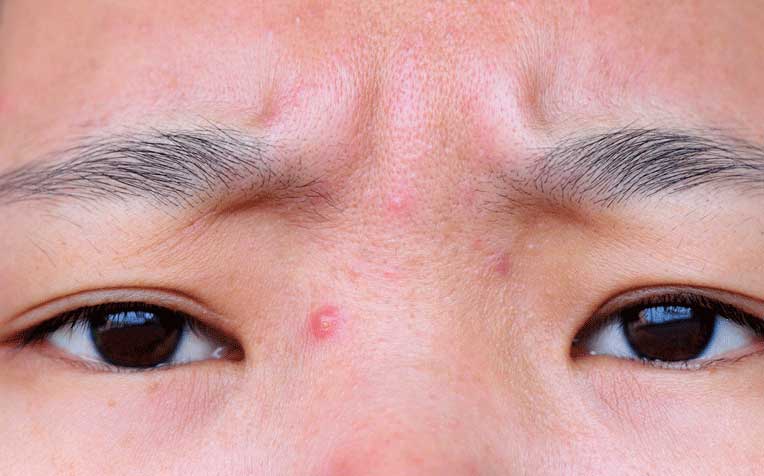
Acne in teenagers can be treated with antibiotics and oral medications.
Treating acne and pimples in teenagers: use over-the-counter creams with caution
Teen acne is treated with a combination of medications depending on its severity. These medications range from vitamin A and antibiotic topical creams and face cleansers, to oral medications such as antibiotics.
Creams and cleansers are the first level of acne treatment, and are very effective for mild non-inflammatory acne that presents with whiteheads and blackheads but may not be effective for larger pimples or red spots. These creams can be over-the-counter or prescription formulations.
“Treatment of teen acne is done on a treatment ladder depending on the severity of the condition. In mild acne, vitamin A creams and topical antibiotics are very effective when used on acne-prone areas,” says Dr Mark Koh, Head and Consultant, Paediatric Dermatology Service, KK Women’s and Children’s Hospital (KKH), a member of the SingHealth group.
While over-the-counter creams are effective for mild acne, they should be used with caution. If you have been using an over-the-counter cream without success, do consult a dermatologist, Dr Koh advises. Excessive use of some over-the counter creams can worsen your acne and even lead to other skin conditions such as eczema.
Acne treatment with antibiotics and oral medications
Oral antibiotics are at the next level of acne treatment and are suitable for moderate to severe acne. These medications can take at least 4-8 weeks to show effect. They need to be taken long-term, for 4-6 months, even up to a year, to be effective in controlling pimples, cysts and nodules.
If antibiotics are found to be ineffective or if a patient presents with very severe acne, the more powerful oral medication isotretinoin is prescribed.
This drug, the third level of acne treatment, is very effective against severe acne but has several side effects. These side effects include reversible liver inflammation, increased cholesterol levels, dry eyes, dry mouth and dry skin. It is also contraindicated in pregnant women because of its link to birth defects. Patients who are prescribed isotretinoin have to be closely monitored with regular blood tests because of these side effects.
“Isotretinoin usually leads to a cure of acne but 20 per cent of the patients who receive it may need further treatment even after using it for 9-10 months and finishing the course of the drug,” says Dr Koh. “About 60-70 per cent of patients will respond to creams, a further 20-30 per cent will require oral antibiotics and less than 5 per cent will require treatment with isotretinoin.”
Patients who have completed the course of isotretinoin and have a relapse, may need to go back on antibiotics and topical creams to control the fresh outbreak of pimples.
“Teen acne treatment is more about control than cure,” says Dr Koh, “Acne waxes and wanes. Stress plays an important role. When you have exams and you don’t get enough sleep at night, your acne will worsen. Once the stress goes away, the acne will also improve.”
Ref: S13
Contributed by















 Get it on Google Play
Get it on Google Play